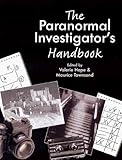The enigma of a prehistoric advanced society has mystified seekers after ancient wisdom and perplexed writers for more than two thousand years. In the modern Info-Age, New Age online book store browsers have at their disposal a massive list of publications alluding to the myth of Atlantis.
There are more thoughts regarding what that fantastic island entailed and beneath which sea the remnants can be recovered than virtually any other tale of primordial people. Yet the tale of a lost continent which perished in a Deluge has endured exactly because it resonates so clearly as we confront what may turn out to be our own Deluge or Golden Age.
Plato originally wrote chronicling a forgotten Paradise, known as Atlantis, around 355 BC. His version suggests Atlantis lay “beyond the pillars of Hercules” and had perished about ten thousand years prior.
Prolific author Edgar Cayce described the island as a vast continent, rivaling the dimensions of Greenland. As recounted in the prophet’s vivid version, the inhabitants of the Island made use of powerful telepathic abilities and tools, and seeded colonies to the oddly congruent solar-worshiping civilizations of the ancient Egyptians and the Empires of native America. The theme is often related with crystal power, astrology, and channeling, as well as parapsychology, and is part of the mythos of Awakening prophecies.
Conjectures on the location of the “Lost Continent” stretch from the Far East to the Bermuda Triangle, though, naturally the most promising locations which are European islands, particularly Sardinia, Crete, and Cyprus.
The world may never know the true story, but there is one message which is hard to deny: cultural innovation has achieved high levels of advancement in the distant past and the cycle of rise and catastrophe, perhaps in a recurring pattern, thousands of years before our earliest known words were laid down.












![The Chronicles of Narnia: The Voyage of the Dawn Treader [Blu-ray] Image of The Chronicles of Narnia: The Voyage of the Dawn Treader [Blu-ray]](http://ecx.images-amazon.com/images/I/61419vkvboL._SL110_.jpg)

